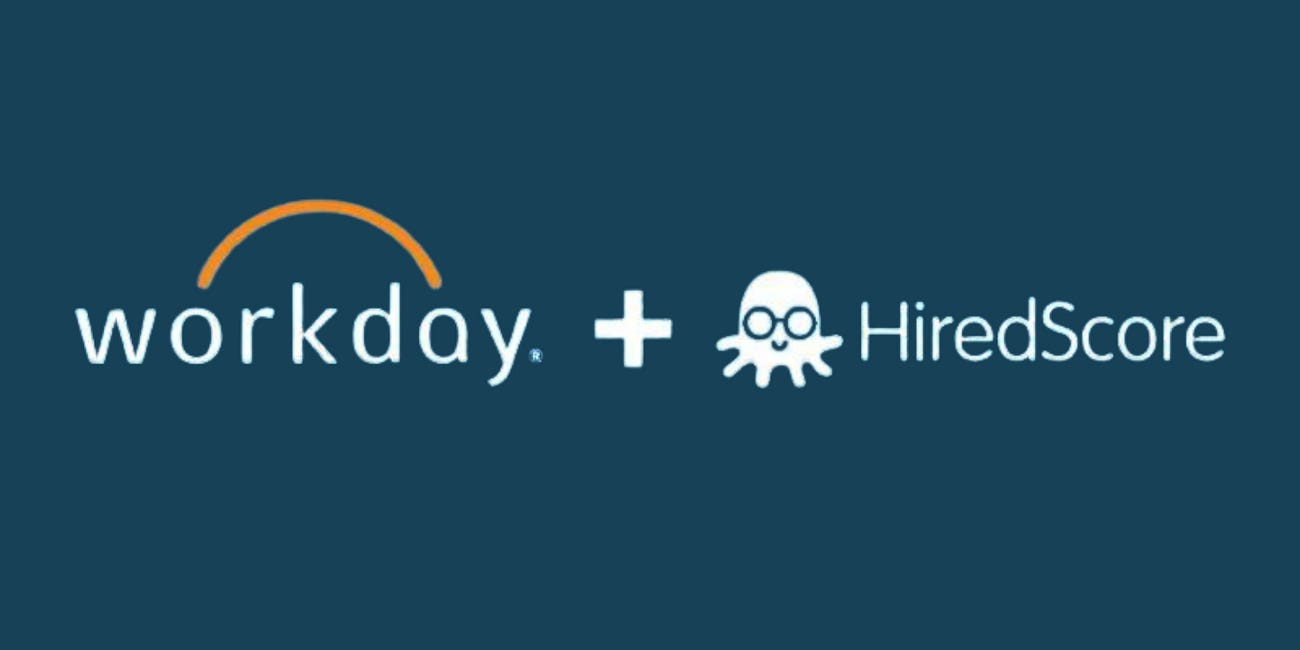On the recent acquisitions in HR Tech.
Brief reflections on Paradox, SmartRecruiters, Flowise, Workday, SAP and Dayforce
Large vendors are buying smaller vendors. This month we have seen SAP announce a deal to acquire SmartRecruiters (we were small investors), and Workday for Paradox and flowise. I can’t comment on the details, so I’ll keep this high level.
Congratulations for all involved. Getting these over the line is complicated and fraught.
This sort of deal is not a new thing. It is not fundamentally disruptive, potentially transformative, game changing, brave or revolutionary. It’s just how capitalism works since like forever. It is the same game, both teams have signed new players. These are wise, sensible, logical, incremental and prudent moves. There’s no financial gymnastics or massive strategy shifts, it’s exactly what well-endowed incumbent vendors ought to do.
Paradox and SmartRecruiters are both excellent products, best in class at what they do. Jerome and Aaron founded and grew remarkable businesses. They were pioneers, building genuinely new and useful things. They also picked great successor CEOs in Rebecca and Adam.
But I do wish the influencer/analyst community would tone down the giddy eulogies just a one notch.
I’ve two earlier posts that might be helpful to understand the context for M&A. It also saves me repeating myself. To quote Delia Smith, here’s two I prepared earlier.
Tuck-in and bolt-on M&A is rarely revolutionary
It seems my writing mojo has returned. Here I dabble at my old analyst job. This post is in two bits, one about the Workday / HiredScore deal, the other a re-posting of my advice to users when vendors do the acquisition dance. And as usual, a musical treat at the end.
Explaining M&A through the lens of Income Statement v Balance Sheet.
I’ve seen a bunch of M&A deals over the years. I covered several while at Gartner, lived through the post merger acquisition experience at SAP SuccessFactors, was on the board of Immedis when it was acquired by UKG, I have advised several founders and CEOs through the acquisition process, and I even know investment bankers that I consider to be friends…
Flowise, briefly
The Flowise acquisition is all about the tech and people assets (I don’t know the product). I expect to see many of the large worktech / ERP vendors continue to acquire promising AI products and teams. Some of these deals will happen earlier than one would typically expect. The race is on amongst the large vendors to build deep AI capabilities. This will mean more shopping and hiring.
SmartRecruiters and Paradox acquisitions serve similar purposes
They strengthen areas of the product stack that are comparatively weak. (see post above about the all you can eat buffet problem).
They increase the AI in production chops.
There is more going on with AI in Recruitment than other areas of worktech. Recruitment lends itself to experimentation more so than payroll does.
Add extra SKUs to the sales bag
Strengthen both firms’ broader AI narratives for the capital markets. Investors are increasingly evaluating vendors like Workday, Salesforce, ServiceNow etc on their AI narratives, not just SaaS ARR.
Arguably a better use of the cash pile than a share buy-back.
For the acquired companies
It is liquidity for investors. Investors-in-the-investors view DPI fondly, and neither company was in a position to IPO, given their relative size and the challenging narrow nature of the IPO window. There are willing strategic and financial buyers though, and they chose well.
It provides a powerful GTM machine for the products.
It may well provide funding and access to new data sources to accelerate AI innovation.
Both companies have built competent PMI.
As with any acquisition, the test will be the post merger acquisition. SAP has gradually improved its PMI, the acquisitions of Signavio, LeanIX and more recently Walkme illustrate this. Workday too has significantly improved its ability to absorb acquisitions. There will be all sorts of hard work to do on technical integrations, as well as organizationally.
For the broader market
This is likely to herald a wave of similar activity from other firms. ServiceNow has been an assertive acquirer, as has Deel, and the large PE firms will be busy (see Dayforce deal). I’m not going to second guess Oracle or UKG. There is a good supply of acquirable businesses, and this wave helps set buyer and seller valuation expectations. M&A advisors will be busy.
For customers
You have some figuring out do. The post I linked to earlier may help you with that. “Always be expecting your cool niche vendors to be acquired. It is where we are in the cycle. Plan for it, and you will be so much better off than those who don’t.” Heads of Recruitment will probably grumble, seeing their favourite niche vendors acquired harshes their mellow.
For ecosystem players
This is probably the biggest disruption. Products that might have been cosy partners now will be seen as competitors. It is a brutal game of musical chairs. If you are a candidate relationship play that sits snugly on top of Workday or SuccessFactors, you’ll need to up your game.
Beyond the echo chamber
The deal this week that is actually more significant than these acquisitions is Thoma Bravo taking Dayforce private. David Ossip and his team have quietly built Dayforce into a strong viable alternative to Workday, ADP, SAP SuccessFactors and UKG. While the Smartrecruiters and Paradox deals are getting the Linkedin adulation, the Dayforce deal is probably at least 10x financially more significant. Thoma Bravo has massive investing power, so once the dust is settled, I’d expect that there will be more to come.
Speaking of echo. Here’s Echo & The Bunnymen.



